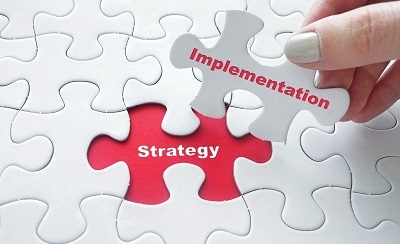
Harare – 15 April 2019 (ACBF) – The problem of low implementation of policies has militated against African development in the post-independence era. Several studies have identified it as one of the major factors holding back the continent.
In an effort to contribute to addressing this important issue, the African Capacity Building Foundation (ACBF) is covening its Sixth Africa Think Tank Summit planned for 24-26 April 2019 in Nairobi, Kenya, under the theme “Tackling Implementation Challenges for Africa’s Sustainable Development”.
The Summit is being organized in partnership with the Government of Kenya and the Kenya Institute for Public Policy Research and Analysis (KIPPRA), together with other partners.
The main objective of the 2019 Summit, the sixth in the series, is to provide a better understanding of why policies and programs are not effectively implemented in many African countries, and offer recommendations for enhancing implementation to achieve desirable development outcomes.
According to an ACBF August 2013 study titled, “The Digest of OAU-AU Treaties, Conventions and Agreement 1963 to 2014”, about 42 treaties/agreements were signed by the OAU and its successor the AU between 1963 and 2014, but only 25 had been ratified by 2014. Even then there was little implementation on any of them.
The study also showed that from 2002 to 2018 (the era of the AU), 51 treaties and agreements were signed with 31 of them (60.8%) yet to be ratified for implementation.
In the last two weeks, the Africa Continental Free Trade Area (AfCFTA) agreement – which is expected to boost intra-African trade and enhance competitiveness at the industry and enterprise level - has received the mandatory 22 ratifications and is now ready for implementation. But it will not take off if the implementation capacity challenges being faced at national, regional, and continental levels are not addressed.
Equally important, the capacity gaps for implementing the AU Agenda 2063 and the UN 2030 Agenda are vast, multi-level, and multidimensional. The needs for strengthening the implementation capacities are high, particularly in the areas of planning, financing, monitoring, evaluation and statistics.
Therefore, there needs to be a course of action put in place for the implementation of the various policies and development programs, and build the relevant capacities for getting things done. Coupled with this, is the will by the African leadership to get things done and hold accountable those responsible for implementation.
While all actors involved in the policy implementation chain have a critical role to play, think tanks - in view of their role in conducting research, providing advice and advocating for change - can support policy implementation more effectively than other actors.
Think tanks can also have direct policy influence by advocating for the implementation of a specific proposal or by proposing policy change.
Thus, the 2019 Summit will provide space for representatives of more than 100 African think tanks and offer them the opportunity for peer-to-peer exchange of practices and lessons.
The Summit will also provide a platform for the think tank community and stakeholders (development partners, government officials, private sector and non-state actors in general) to brainstorm on new innovative ideas and strategies for impacting public policy and supporting the implementation of Africa’s development agendas.
To this end, through various keynote speeches, presentations, discussions, interactions and side-events, the Summit will address the following four objectives:
(a) Provide insights on why policies and programs are not effectively implemented in many African countries.
(b) Deliberate on the role of transformative leadership (including the role of state and non-state actors) in tackling policy implementation challenges.
(c) Offer actionable recommendations to foster a better implementation of policies and programs, including the required human and institutional capacities as well as the environmental setting needed.
(d) Advocate for a coordinated continent-wide movement and platform (including the definition of a research agenda) for think tanks to be capacitated and support the implementation process of national development plans, SDGs and Agenda 2063.
-ENDS HERE-
For more information, please contact:
Tsitsi Spargo-Chakonza
The African Capacity Building Foundation
Harare, Zimbabwe
+263 7+263-4 304663, 304622, 332002, 332014; Ext. 279
Email: T.Chakonza.acbf-pact.org
About the African Capacity Building Foundation
Established in 1991, ACBF builds human and institutional capacity for good governance and economic development in Africa. To date the Foundation has empowered people in governments, parliaments, civil society, private sector and higher education institutions in more than 45 countries and 6 regional economic communities. ACBF supports capacity development across Africa through mobilization and leveraging of resources for capacity development; grants, investments and fund management; knowledge services; promoting innovation in capacity development and capacity development advisory services. The establishment of ACBF was in response to the severity of Africa’s capacity needs, and the challenges of investing in indigenous human capital and institutions in Africa. ACBF interventions are premised on four principles: the centrality of capacity to the development process in Africa; the critical role of a partnership and demand-driven approach in tackling capacity challenges; African ownership and leadership in the capacity development process; and a systematic, sequenced and coordinated approach to the capacity development process that pays attention to capacity retention and utilization. For further information go to: www.acbf-pact.org





